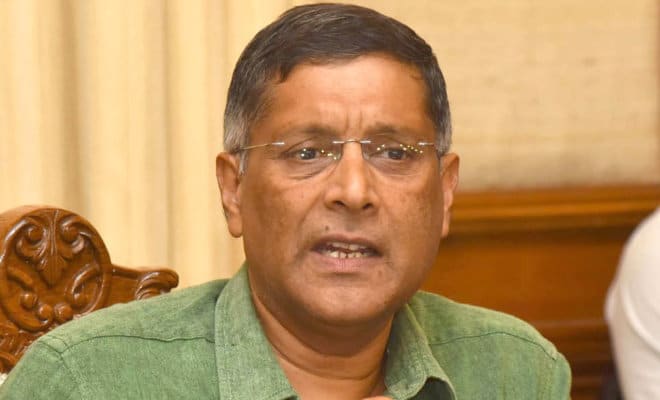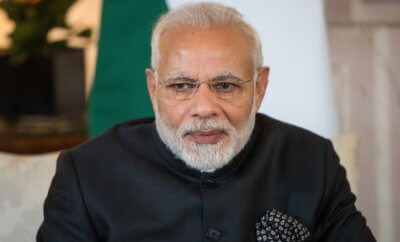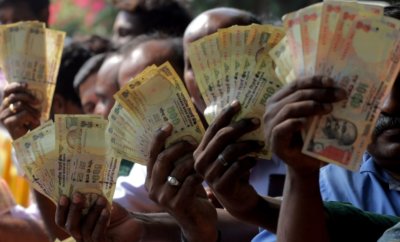Politics
India’s Chief Economic Adviser Quits, Cites Personal Reasons to Return to U.S.

Chief Economic Adviser Dr. Arvind Subramanian addressing a press conference, in New Delhi on June 20, 2018.
Photo: PIB
"My departure from this job is for entirely personal reasons," Chief Economic Adviser Arvind Subramanian said.
India’s Chief Economic Adviser Arvind Subramanian has decided to quit the post, citing personal reasons that require him to move back to the United States. Finance Minister Arun Jaitley announced the update through a Facebook post titled “Thank you Arvind” on June 20, saying that Subramanian will be leaving because of “pressing family commitments.”
Subramanian, who was appointed as the CEA, Finance Ministry, on Oct. 16, 2014 for a three-year term, was given an extension last year, and his contract would have ended in May 2019. He said he would leave the office within the next two months, PTI reported.
“My departure from this job is for entirely personal reasons. It is no secret that we are expecting our first grandchild in the early September. That’s a very compelling reason that takes us back to old life of that used to lead of researching, writing, teaching and reflecting above all,” he said, according to the report.
My statement on the announcement of my departure from the job of CEA. pic.twitter.com/4slYcujugO
— Arvind Subramanian (@arvindsubraman) June 20, 2018
Calling Jaitley “the dream boss,” Subramanian added that the CEA job was the “most rewarding, fulfilling, exciting” one he ever had.
Profoundly grateful & humbled by these extraordinarily generous words by Minister @arunjaitley announcing my decision to return-for personal reasons-to researching & writing. CEA job most rewarding, fulfilling, exciting I have ever had. Many many to thank:https://t.co/kwsRqDrMTB
— Arvind Subramanian (@arvindsubraman) June 20, 2018
Jaitley had earlier written in his Facebook post that Subramanian’s reasons for leaving “were personal but extremely important for him. He left me with no option but to agree with him.”
Subramanian, 59, was appointed by the BJP government as the chief economic adviser after his predecessor, Raghuram Rajan, took over as the Reserve Bank of India (RBI) governor.
The India-born, Oxford-educated economist is a Dennis Weatherstone Senior Fellow at the Peterson Institute for International Economics in Washington. He was on leave from the institute during his tenure as the CEA in India, Business Today reported.
Subramanian has become the third foreign-educated economist appointed by the Narendra Modi-led government to leave a high-profile post in India and return to the United States in the last three years. Rajan, a Katherine Dusak Miller Distinguished Service Professor of Finance at the University of Chicago Booth School of Business, went back to the United States in 2016 after his term at the RBI was not extended by the government. Niti Aayog Vice Chairman Arvind Panagariya, who had come from Columbia University in January 2015, quit in August 2017, almost two years before the end of his term. Panagariya returned to the United States to resume his job as a professor of economics and the Jagdish Bhagwati Professor of Indian Political Economy at Columbia.
The three economists were often criticized by a section of Indians, who accused them of being detached from the country’s ground realities. Rajiv Kumar, who took over as the Niti Aayog head after the exit of Panagariya, wrote in a column for the Hindi daily Dainik Jagran last year that India’s policy creation until now was largely inspired by international establishments like the International Monetary Fund or the World Bank or foreign universities to which the foreign-educated “imported experts” had deep reverence, and involved proposals that were more theoretical than actually related to the grassroot situations in India.



